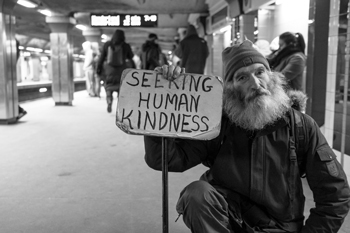 If you are unaware of regular and thorough handwashing, personal disinfecting and social distancing, then you must not be on planet Earth. In what feels like only days, lives of Americans have gone from our own normals to self-quarantine and worry, more intense in some places but present everywhere. Will our families and those we love get sick? Will we get sick? Will our jobs continue? Will we ever be “normal” again?
If you are unaware of regular and thorough handwashing, personal disinfecting and social distancing, then you must not be on planet Earth. In what feels like only days, lives of Americans have gone from our own normals to self-quarantine and worry, more intense in some places but present everywhere. Will our families and those we love get sick? Will we get sick? Will our jobs continue? Will we ever be “normal” again?
Most of us are going to use best practices faithfully, both for ourselves and for others. Still, for many of us, anxiety now hovers at all times and requires management, and a cottage industry has sprung up to address our fears. Included in strategies offered from various quarters are reaching out to others not in person but by phone, text, email to make sure people we know and love are managing. Gratitude journals are springing up to remind us of the good times in our lives and looking ahead with hope. Experts remind us to control what we can — to eat well, to exercise even if it is in our own homes during self-quarantine, to meditate as a way of easing stress and to remind ourselves that we are doing the best we can.
It is hard to know what to say about people, both young and mature, who behave as if there were no worldwide pandemic or that they are invincible. At some point, they will have to come to terms with having hastened community spread to other human beings, sickening some and possibly killing some. That is a burden no one should seek, especially when health-care workers and other service providers are risking their lives for the rest of us — literally.
Most of this is beyond our individual control, but we can take and implement the advice given by those on the front lines. Each of us has a choice to make as a human being. Are we part of problem or part of the solution? Are we helping to stop the pandemic or are we promoting it? These are profound and private decisions for each of us.
The following comes from the Interfaith Hospitality Network of Cincinnati, and it speaks to people of all faiths or no faith at all.
“May we who are merely inconvenienced remember those whose lives are at stake.
May we who have no risk factors remember those most vulnerable.
May we who have the luxury of working from home remember those who must choose between preserving their health or making
their rent.
May we who have the flexibility to care for our children when their schools close remember those who have no options.
May we who have to cancel our trips remember those that have no place to go.
May we who are losing our margin money in the tumult of the economic market remember those who have no margin at all.
May we who settle for quarantine at home remember those who have no home.
During this time when we cannot physically wrap our arms around each other, let us yet find ways to be the loving embrace of God to our neighbors.”
Amen.
Love in the time of COVID-19
- Details
- Written by Margaret Dickson